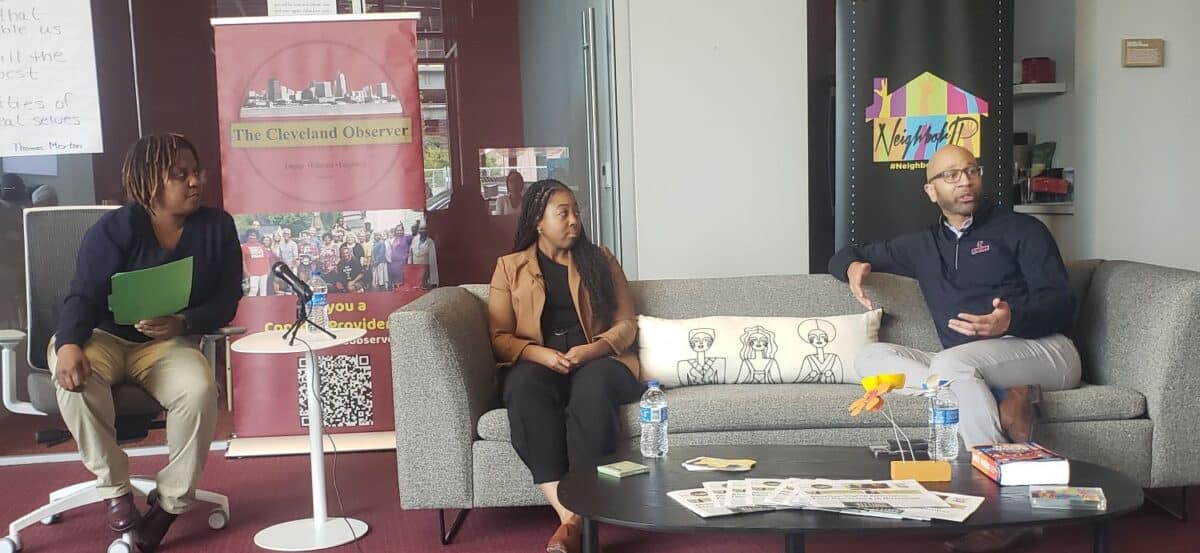By Tiffany Alexander
Clevelanders gathered at Neighborhood Connections in Midtown on Friday, Oct. 20, for a community conversation on mental health. The event was sponsored by The Solutions Journalism Network’s first HBCU + Black Press fellows cohort grant, which aims to deepen SJN’s engagement with colleges and universities and reinforce its commitment to historically underserved communities.
“Our Mental Health in Focus” featured panelists Eric L. King Sr. and Qwen Smith, both counselors at the Mental and Emotional Wellness Centers of Ohio, one of the few Black-owned mental health practices in the state offering comprehensive care. The discussion, which included an interactive segment with the audience, was moderated by Cleveland State professor Tiffany Alexander.
“Mental health is essentially how a person responds to events in their life,” said King. These events could include moving, losing a job, the death of a loved one, or experiencing trauma. King and Smith highlighted tools for managing stress, such as breathing exercises, physical activity, and mindful eating. “If you’re struggling with daily stress and relationships, it might be time to seek professional help,” advised Smith.
Smith elaborated that individuals might seek counseling if they are “having a hard time navigating things at home or work, or if they are experiencing significant issues in their relationships.” She added that untreated stress can manifest physically, with symptoms like a racing heartbeat, sweating, or shortness of breath.
Audience members raised issues such as socioeconomic disparities and the lingering effects of the pandemic as major stressors. The impact of televised violence against the Black community was also discussed, which King described as “vicarious trauma”—trauma induced by witnessing violent events either in person or through the media. The panelists emphasized the importance of taking breaks from negative images and news. Smith suggested dedicating 30 minutes daily to self-care activities, such as spending time in silence, taking a walk, or enjoying a private morning coffee.
The predominantly African-American audience underscored the challenge of finding Black therapists and agreed that more community discussions on mental health in the Black community are essential and beneficial.
The Cleveland Observer, committed to producing content through a solution-based lens utilizing the four fundamental pillars of Solutions Journalism, aims to address major issues and concerns by establishing a student-led permanent news desk. This initiative, called the Solutions Journalism Student Media Challenge, will enable the Cleveland Observer to form a team of “Observers.” These students will be assigned specific topics and events to report on, contributing to a database that creates impactful content.
For more information about the Mental and Emotional Wellness Centers of Ohio, visit MEWCOHIO.com.
To see the live stream Click Here: Our Mental Health In Focus
The Cleveland Observer, committed to producing content through a solution-based lens utilizing the four fundamental pillars of Solutions Journalism, aims to address major issues and concerns by establishing a student-led permanent news desk. This initiative, called the Solutions Journalism Student Media Challenge, will enable the Cleveland Observer to form a team of “Observers.” These students will be assigned specific topics and events to report on, contributing to a database that creates impactful content.
Sponsored by Solutions Journalism Network.




